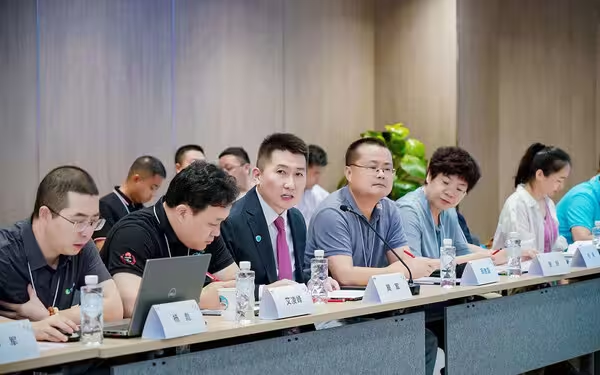Saturday, November 16, 2024 03:22 PM
Huawei Expands Partnerships for Global Digital Inclusion through TECH4ALL
- Huawei's TECH4ALL initiative promotes global digital inclusion.
- Accessibility features integrated into smartphones benefit millions.
- Cross-sector partnerships enhance digital inclusion projects.
 Image Credits: en_prnasisa
Image Credits: en_prnasisaHuawei's TECH4ALL initiative aims to enhance global digital inclusion through partnerships and innovative technologies, ensuring no one is left behind.
In today's rapidly advancing digital world, the concept of digital inclusion has become increasingly important. Digital inclusion refers to the efforts made to ensure that everyone, regardless of their background or abilities, has access to digital technologies and the internet. This is crucial for fostering equality and providing opportunities for all individuals to thrive in a technology-driven society. Recognizing this need, Huawei has launched the TECH4ALL initiative, which aims to promote global digital inclusion through various partnerships and projects.
At the recent TECH4ALL Digital Inclusion Forum held during Huawei Connect 2024 in Shanghai, the company emphasized the importance of collaboration in achieving its goals. Launched in 2019 and aligned with the United Nations Sustainable Development Goals (SDGs), TECH4ALL is Huawei's long-term action plan focused on creating an inclusive and sustainable digital world. The initiative targets key areas such as education, environment, health, and development, ensuring that no one is left behind in the digital revolution.
During the forum, attendees discussed various TECH4ALL projects and the advancements in digital inclusion in China, as highlighted in the 2024 China Digital Inclusion Report. Xin Yongfei, Director of the CAICT Institute for Policy and Economics, stated, "Promoting digital inclusion can not only effectively deal with problems that may exist in the development and application of digital technology, but also improve the realization of our overall goals." This statement underscores the significance of addressing barriers to information accessibility and creating equal opportunities for all.
A major focus of the discussions was the role of cross-sector partnerships in enhancing the effectiveness of inclusion projects. Jeffrey Zhou, President of ICT Marketing at Huawei, remarked, "Huawei is committed to supporting China's digital inclusion strategy." The company collaborates with various stakeholders, including governments, enterprises, research institutions, universities, and non-governmental organizations (NGOs), to implement projects that serve as valuable references for global digital transformation.
One of the key aspects of Huawei's approach is its consideration of the needs of individuals with disabilities. At the forum, representatives from the deaf and vision-impaired communities highlighted how technology can facilitate digital inclusion. Huawei has integrated 15 accessibility features into its smartphones, which are utilized by approximately 10 million people each month. These features include Bluetooth connectivity for hearing aids and technologies that provide job recommendations tailored for individuals with disabilities.
Yin Nan, Chairman of the Tianjin Hongqiao District Blind Association, emphasized the importance of technology in providing equal opportunities for all. He stated, "As a visually impaired device user and Huawei partner, I think it's crucial to share the message that technology can give everyone an equal opportunity to participate in society, use public resources, and help eliminate the digital divide." This sentiment reflects the broader goal of ensuring that everyone can benefit from digital advancements.
In addition to accessibility features, Huawei has developed the Trouble-Free Hearing app in collaboration with the China Association of the Deaf and E-Times Digital Technology. This app utilizes Huawei Cloud AI to provide speech-to-text and text-to-speech translation, along with a real-time online sign language hub. Such innovations are particularly beneficial in complex situations like healthcare and legal consultations, where clear communication is essential.
The forum also highlighted the TECH4ALL China DigiSchool project, which aims to enhance educational inclusion by providing online resources and teacher training for STEAM (Science, Technology, Engineering, Arts, and Mathematics) curriculum delivery. To date, this initiative has positively impacted 4,800 teachers and students across 29 schools. Furthermore, Huawei's global education and training initiatives, such as the Open School project with UNESCO and the Skills on Wheels project, have reached over 400,000 individuals worldwide.
Huawei's TECH4ALL initiative represents a significant step towards achieving digital inclusion on a global scale. By fostering partnerships and leveraging innovative technologies, Huawei aims to create a more inclusive and sustainable digital world. As we move forward, it is essential for all stakeholders to collaborate and ensure that everyone has the opportunity to participate in the digital age, ultimately bridging the digital divide and empowering individuals from all walks of life.













